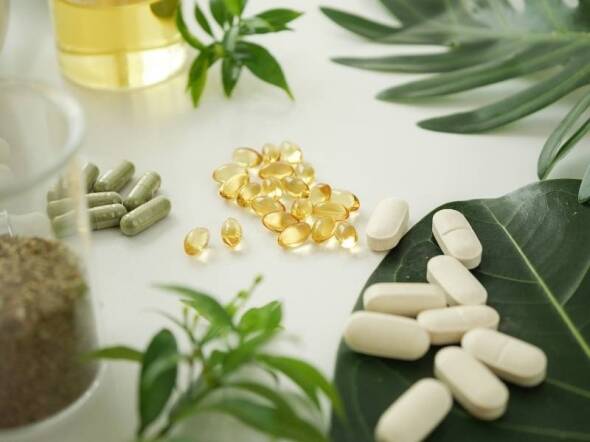Women undergoing treatment for infertility often ask if there are any vitamins or supplements that they can take to improve their chances of achieving pregnancy and having a healthy baby.
Women who are attempting pregnancy should be taking adequate amounts of two vitamins. The first is folic acid, a B vitamin. This vitamin helps the body make healthy new cells and is found in many foods as folate. Foods high in folate include leafy vegetables, citrus fruits, beans, and whole grains.
Other foods are fortified with folic acid — such as breakfast cereals, bread, and pasta. Women of childbearing age need 400 to 800 mcg of folic acid a day. Some doctors recommend 1 mg daily for women carrying twins. Most women do not get enough through diet alone.
Supplements are typically advised. It is important to be on this before attempting pregnancy as it helps prevent birth defects such as spina bifida.
The other vitamin is Vitamin D — often called “the sunshine vitamin.” Vitamin D is produced by direct exposure of skin to the sun. Studies estimate that up to 90 percent of women have low vitamin D levels. Some vitamin D is found in fish and eggs, while other foods are fortified with vitamin D such as cereals, orange juice, and milk.
Recent studies show that women with normal vitamin D levels during pregnancy may have lower risks for miscarriage, gestational diabetes, preeclampsia, and preterm delivery. Vitamin D levels can be monitored through a simple blood test. A level of over 30 mg/ml is considered normal. Supplements are available.
Docosahexaenoic acid (DHA) is a type of omega-3 fatty acid found primarily in fish. DHA helps ensure proper brain development in the fetus and promotes better attention and learning later in life. DHA is also responsible for healthy eyes, nervous system development, and proper immune function. Experts estimate that the average woman eats only two ounces of the recommended 8-12 ounces of fish per week during pregnancy. DHA supplements providing between 300 and 600 milligrams per day for at least six weeks before conception, throughout pregnancy, and while breastfeeding, is strongly recommended.
Adequate iron and calcium are also important in pregnancy. During pregnancy, the amount of iron your body needs nearly doubles.
Iron is needed to make hemoglobin, a protein in your body that helps carry oxygen to your cells and the developing fetus. When you are pregnant, the volume of blood in your body increases by about 50 percent, requiring more hemoglobin. The CDC recommends that pregnant women take a daily supplement of 30 mg of iron. It is also recommended that they eat iron-rich foods such as red meat, beans, green leafy vegetables, and iron-fortified grains and cereals.
Calcium helps build strong bones and teeth and is important for nerve and muscle development and heart functioning in the fetus.
Most women do not get the daily recommended amounts of calcium. All women should try to eat four servings of dairy products or other foods high in calcium each day. Milk, yogurt, cheese, and green vegetables are excellent sources of calcium. The U.S. Recommended Daily Allowance (USRDA) for calcium is 1200 milligrams (mg) per day for pregnant and breastfeeding women.
The easiest way for women to ensure that they are getting adequate amounts of folic acid, vitamin D, DHA, iron, and calcium is to take a prenatal vitamin daily — either by prescription or over the counter. Women should check the label to make sure they contain adequate amounts of these important ingredients.
Two supplements that are commonly used to help older women (over 35) and those with low ovarian reserve improve their chance of pregnancy are Coenzyme Q10 (CoQ10) and DHEA.
These are usually taken by women undergoing in vitro fertilization (IVF) to increase the number of eggs produced by the ovaries. CoQ10 is an antioxidant needed by every cell in the body-including the ovary. CoQ10 is found in meats, green leafy vegetables, nuts, and seafood. Supplements are also available. The most common supplemental dose is 300 mg twice a day.
DHEA is a hormone that is converted to androgens by the female body.
Follicles on the ovaries contain androgen receptors during early egg development. These receptors begin to appear about 90 days before ovulation and disappear about two weeks before ovulation. Studies show that women with low ovarian reserve don’t produce enough androgens and that DHEA supplements taken early in follicular development can improve the quality and quantity of eggs produced. The recommended supplemental dosage is 25 mg three times a day. Ideally, women should be on CoQ10 and DHEA for 60-90 days before undergoing IVF.
In order to ensure a healthy pregnancy, women should check with their doctor before taking any supplements.
